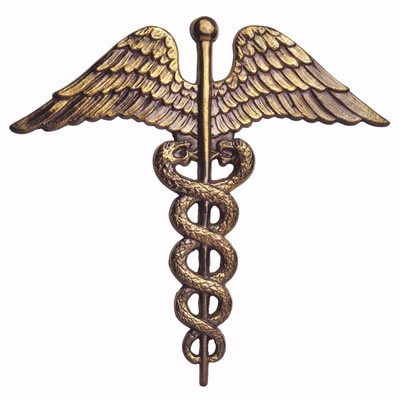Featured Course:
Obesity Basic Medical Treatment (OBMT)
|
|
Contact Us
| |
Bariatric Physicians
2821 S. Parker Road
Ste. 625
Aurora, CO 80014
303.770.2526 | asbp.org
Staff
Laurie Traetow, CAE, CPA
Executive Director
laurie@asbp.org
Beth Amelon
Sponsorships & Exhibits Coordinator
beth@asbp.org
Carly Crosby
Meeting Planner & Executive Coordinator
carly@asbp.org
Marcie Gonzales
Receptionist
marcie@asbp.org
|
|
|
|
Obesity Medicine e-Weekly
|
News
 Featured member benefit: ASBP discussion group on LinkedIn Featured member benefit: ASBP discussion group on LinkedIn
Join more than 500 ASBP members who participate in the discussion group on LinkedIn and enjoy the perks of this members-only benefit:
- Connect with other ASBP members
- Learn what others are doing in the field of obesity medicine
- Post your questions to gain from others' experiences
- Read about the latest obesity medicine news and trends
- Get updates about what's happening with ASBP
To learn more about joining LinkedIn and participating in the ASBP discussion group, view the discussion group guide. Questions? Email membership@asbp.org.
|
Resources
 The Obesity Treatment Foundation (OTF) helps keep you up to date on current obesity research! Each week, OTF publishes a brief overview of three recent studies so you can be in the know, even during your busiest days. Click the titles below to view the full articles, and please consider supporting OTF so we can continue to provide you with updates on the latest research. The Obesity Treatment Foundation (OTF) helps keep you up to date on current obesity research! Each week, OTF publishes a brief overview of three recent studies so you can be in the know, even during your busiest days. Click the titles below to view the full articles, and please consider supporting OTF so we can continue to provide you with updates on the latest research.
Kaufer-Horwitz, M., et al. Eur. J Clin Nutr, 2015.
Knowledge does not always translate into behavior. A study in an obesity clinic examined the relationship between knowledge of appropriate foods and beverages needed for weight loss and the actual diet of patients seeking obesity treatment. The study found that although the patients recognized what an appropriate diet plan included, they did not consume an appropriate diet for weight loss. Treatment approaches should include tools that help patients implement their nutrition knowledge.
Bell, J. A., et al. J Am Coll Cardiol, 2015.
The existence of healthy obesity is a hotly debated topic. This article challenges the concept and examines changes in metabolic and obesity status during 20 years of follow-up in 2,521 adults ages 39 to 62. Of these adults, 66 were considered "healthy obese" at baseline. After five years, 31.8 percent were unhealthy obese, and 40.9 percent, 34.8 percent, and 51.5 percent were "unhealthy obese" after 10, 15, and 20 years, respectively. The proportion of adults considered "healthy obese" who were considered healthy non-obese at follow-up was 6.1 percent, 4.5 percent, 6.1 percent, and 10.6 percent after five, 10, 15, and 20 years, respectively. The authors suggest that the natural course of healthy obesity is progression to metabolic decline.
Effects of high-protein versus high-fat snacks on appetite control, satiety, and eating initiation in healthy women
Ortinau, L. C., et al. Nutr J, 2014.
Two established dietary strategies that improve appetite control, satiety, and/or reduce food intake include the consumption of low-energy-dense foods and increased dietary protein. A study compared the effects of isocaloric low-energy-dense yogurt (high protein, high carbohydrate, low fat), high-energy-dense crackers (low protein, low sugar, high fat) and high-energy-dense chocolate (low protein, high sugar, high fat) on appetite control. When compared to the high-fat chocolate and cracker snacks, eating the high-protein yogurt improved appetite control and satiety and reduced subsequent food intake in healthy women. Recommending a less energy-dense, high-protein afternoon snack to patients with obesity could be an effective dietary strategy to improve appetite control and energy intake regulation.
|
Education

Join nearly 500 obesity medicine clinicians learning about medical obesity treatment
Obesity Medicine 2015 offers clinical and practical knowledge about a variety of topics related to the medical treatment of patients affected by obesity. Join us in Denver for the annual spring conference, which includes three courses packed with all-new content for 2015!
- Full Conference
30 CME | April 8-12
Includes the Spring Obesity Summit and your choice of either Obesity Medicine Essentials (register) or the Nutrition and Metabolism Symposium (register). - Dr. Harold C. Seim Obesity Medicine Essentials
12.75 CME | April 8-9 | Register
Gain practical knowledge in this how-to series about the medical care of patients affected by obesity. - Nutrition and Metabolism Symposium
12.75 CME | April 8-9 | Register
Broaden your understanding about a range of diet and nutrition options based on scientific research. - Spring Obesity Summit
17.25 CME | April 10-12 | Register
Enhance your knowledge about the latest scientific research and trends related to the evaluation and treatment of patients affected by obesity.
Want more? Save the date for Overcoming Obesity 2015: Diagnose. Personalize. Treat. in Washington, D.C., from Sept. 30-Oct. 4, 2015.
 Obesity Basic Medical Treatment course registration now available Obesity Basic Medical Treatment course registration now available
Do you know anyone who wants to learn the basics of medical obesity treatment but doesn't know where to start? The Obesity Basic Medical Treatment (OBMT) course teaches physicians and health care providers who are brand new to the field of obesity medicine about the basic approaches to obesity treatment. Attendees can then decide whether or not to pursue further obesity medicine education or understand when to refer a patient to an obesity medicine clinician. Learn more about this course, or download a printable registration form. Online registration is also available for the following dates and cities.
|
|
|
|
|